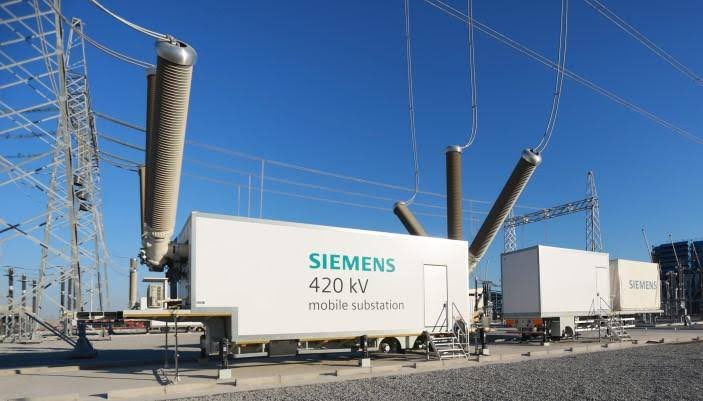The federal government has announced that the initial stage of the Presidential Power Initiative (PPI), also referred to as the Siemens power project, is nearly finished. Five out of the planned 10 power transformers have been installed and commissioned.
During the week, the media office of Minister of Power, Adebayo Adelabu, released a report stating that three out of 10 mobile substations had been successfully installed, as outlined in the Minister’s activities.
Originating from discussions held in 2018 between ex-President Muhammadu Buhari and German Chancellor Angela Merkel, the PPI strives to help the power industry attain financial independence through promoting investments in critical infrastructure.
By addressing transmission and distribution limitations, the initial phase of the program plans to boost capacity to 7GW. Despite significant delays, the project aims to enhance operational grid capacity by another 4GW to achieve a total of 11GW in the second phase. The ultimate goal is to increase end-to-end grid operational capacity to 25GW in phase three.
The minister highlighted that an additional seven mobile substations are set to be installed, emphasizing that the next step of the PPI will focus on enhancing the capacity of the transmission network.
“It will involve upgrading existing transmission substations, upgrading transformers and the re-conductoring and installation of transmission lines,” he said.
He mentioned that the Zungeru power plant has successfully linked to the national grid and is currently undergoing a technical handover from consultants to concessionaire during a one-year defect liability period. This process aims to swiftly address any potential issues that may arise.
Upon the completion of the metering gap, Adelabu emphasized that the primary goal of the Presidential Metering Initiative (PMI) is to annually deploy a range of 2 million to 2.5 million meters over the next five years.
Adelabu emphasized that the recent tariff adjustment will result in the federal government saving N1.5 trillion. However, it was clarified that the government continues to provide subsidies to bands below the ‘A’ level.
“Pricing change will help improve liquidity to the NESI. Distribution Companies (Discos) will be sanctioned for supplying less than 20 hours to Band A consumers,” he said.


